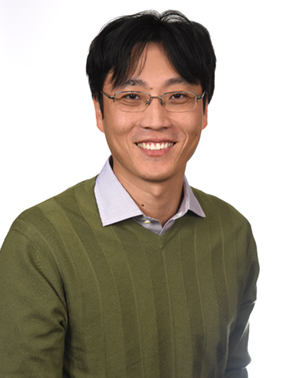W.M. Keck Foundation Awards $1 Million to UCI and Boston University Team to Study Cell Signaling

“This award will give us the freedom to pursue new ideas in molecular and cell biology by evolving proteins that precisely modulate GPCRs (G-Protein Coupled Receptors),” said Chang Liu (shown), UCI associate professor of biomedical engineering, who has received a $1 million award from the W.M. Keck Foundation with Ahmad (Mo) Khalil, associate professor of biomedical engineering at Boston University.
July 15, 2022 – The W.M. Keck Foundation has awarded $1 million to biomedical engineering researchers at UC Irvine and Boston University to study cell signaling, which could unlock significant discoveries in human physiology and lead to therapeutic innovations.
Co-principal investigators Chang Liu, associate professor of biomedical engineering at UCI, and Ahmad (Mo) Khalil, associate professor of biomedical engineering at Boston University, will develop a platform to create biomolecules that enable the systematic study of biased signaling by G-Protein Coupled Receptors (GPCRs). GPCRs are a large class of membrane proteins used by cells to convert extracellular signals into intracellular responses regulating many physiological functions in the human body, including neurotransmission, vision, smell, the endocrine system, and the immune system.
“This award will give us the freedom to pursue new ideas in molecular and cell biology by evolving proteins that precisely modulate GPCRs,” said Liu.
In the classical model, GPCRs act as on/off switches where a ligand acts to turn on or off all signaling from a GPCR. In recent years, however, this classical model has been expanded through the discovery of biased GPCR ligands, biomolecules that do not simply activate or inhibit all signaling but selectively modulate downstream pathways. In effect, this turns a black-and-white signaling paradigm into “color” by adding another dimension to its possibilities, explained the researchers.
However, researchers’ ability to probe this dimension is limited by the lack of specific and potent GPCR ligands capable of triggering biased signaling in desired directions. Liu and Khalil will combine their work on establishing versatile reporters for GPCR signaling with their novel continuous evolution technologies to derive new ligands that induce user-defined signaling profiles for human GPCR targets.
The new ligands will be used to trap medically relevant GPCRs in distinct or previously unseen conformations, enabling structural and biochemical studies to uncover the molecular mechanisms of biased GPCR signaling and the detailed interrogation of multidimensional signaling of many other signaling systems as well.
“GPCRs control almost every aspect of human physiology and the ability to selectively activate certain GPCR signaling pathways over others is hypothesized to have major therapeutic advantages, like treating pain or heart conditions with fewer side effects,” said Liu. “Yet whether this selective activation is possible in a general manner, that is still an open question in the field. We are excited to answer that question by leveraging our continuous protein evolution approaches.”
Liu was also recently selected as one of 10 Blavatnik National Awards finalists in the life sciences for 2022. The Blavatnik National Awards honor America’s most innovative young faculty-rank scientists and engineers. He was recognized for his work in evolutionary and synthetic biology, such as this research. Khalil also recently won a Schmidt Science Polymaths award.
Based in Los Angeles, the W.M. Keck Foundation was established in 1954 by the late W.M. Keck, founder of the Superior Oil Company. The foundation’s grant making is focused primarily on pioneering efforts in the areas of medical research and science and engineering. The foundation also supports undergraduate education and maintains a Southern California Grant Program that provides support for the Los Angeles community, with a special emphasis on children and youth. For more information, visit www.wmkeck.org
– Tonya Becerra
